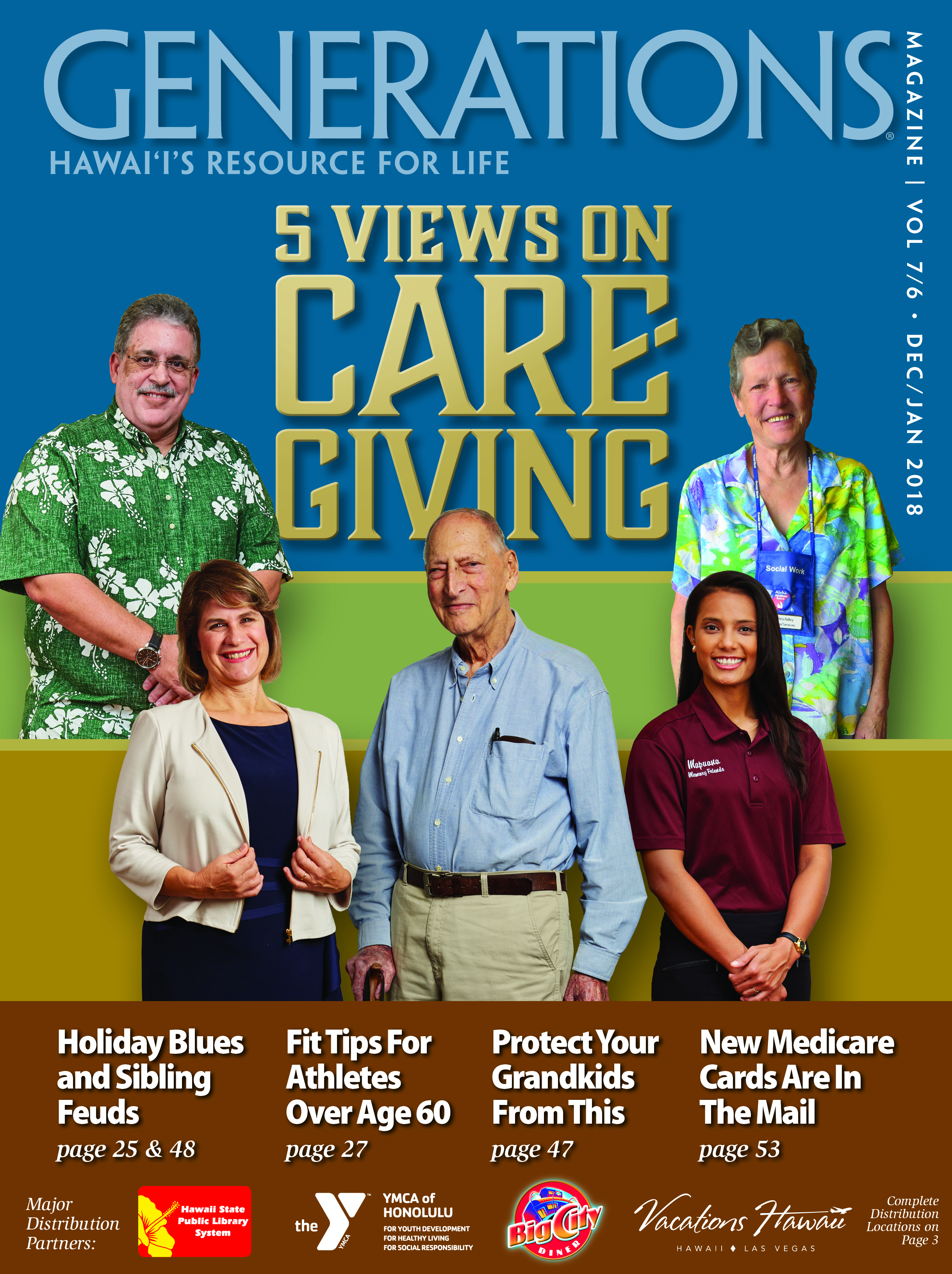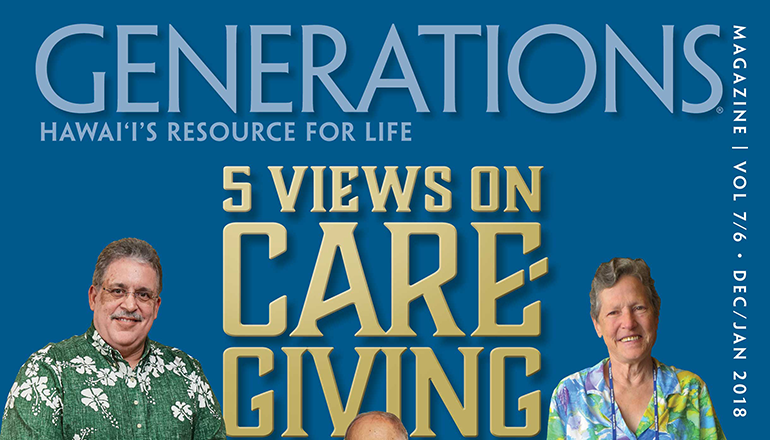Category: Dec 2017 – January 2018
-
A New Style of Caregiving
The term “millennial” typically evokes certain images in our minds. Born between 1985 and 2004, millennials have been labeled the “Me Generation,” “Me, Me, Me Generation,” “Peter Pan Generation” and “Boomerang Generation.” These are far from complimentary. Aside from reflecting re-verse ageism, such stereotypes divert attention from this generation’s unique potential for kūpuna care. Millennials…
-
Go with Your Gut
The World Health Organization (WHO) has identified mental wellness issues — stress, depression and anxiety — as the leading causes of a “global health burden.” Could it be that, for the past century, we’ve had the mistaken notion that these problems are all in our head, when in reality they are largely in our gut?
-

Five Views on Caregiving
Aging with dignity is a major public health issue for the state of Hawai‘i. People of all ages work with and advocate for the elderly by providing educational resources for families and brainstorming private and public health solutions for the growing needs of kūpuna. All generations offer experience and expertise. By 2029, over 70 million…
-

-
Part II: Zero Chance of A Lottery Win
In the October/November issue of Generations Magazine, I explained that it is better to make a logical and legal argument against someone being a winner of a lottery, as opposed to showing them they are a victim of a lottery scam. The following facts prove that you have a zero percent chance of winning a…
-
Family Peacekeeping Methods
Central to the Hawaiian culture is the value of ‘ohana,’ or family. Maintaining the “family health” was of utmost importance and was achieved through the regular practice of ho‘oponopono. In the article, “To Set Right Ho‘oponopono A Native Hawaiian Way of Peacemaking,” Manu Meyer discusses how families practice ho‘oponopono. Traditionally, ho‘oponopono discussions were facilitated by…
-
An Estate Plan For your Digital Assets
You have a digital estate if you send emails, participate in Facebook and other social networking sites, do online financial transactions, play internet games, or store photos and other important files in the “cloud.” What happens to your digital estate if you become incapacitated or die? There are both federal and state laws that come…
-
Keep Stock Market in Perspective
The stock market has enjoyed an extended period of strong performance that dates back to the end of the last bear market in early 2009. While stock market performance can be measured in myriad ways, it’s the Dow Jones Industrial Average that has surpassed several 1,000-point milestones so far in 2017: The Dow first topped…
-
Sign Language Videos and Email Scams
Q I heard there is a Social Security video available in American Sign Language. Where can I find it? A Yes, it’s true. The video is called “Social Security, SSI and Medicare: What You Need to Know About These Vital Programs.” The video is available in American Sign Language and presents important information about our…
-
WARNING: ‘Aging in Place’ Homes
Many seniors are aware of the Long-Term Care Ombudsman Program and its role as their advocate if they have a problem or concern regarding a nursing home, adult residential care home, assisted living facility or community care foster family home. What they may not know, however, is that if they choose to live in what…
-
The Many Facets of Dementia
Alzheimer’s Disease and dementia — isn’t that the same thing? The simple answer is no. Dementia is an umbrella term for the different types of diseases that affect the brain. Alzheimer’s Disease is only one form of dementia. Also on the list we have Lewy body dementia, alcohol-related dementia, frontal-temporal dementia, Parkinson’s-related dementia, and so on. Dementia is…
